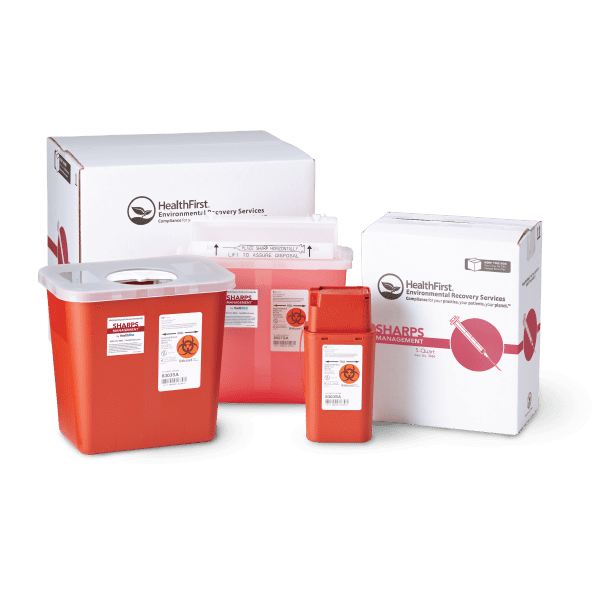Ecological Duty: The Eco-Friendly Strategy to Medical Waste Disposal
Ecological Duty: The Eco-Friendly Strategy to Medical Waste Disposal
Blog Article
The Importance of Appropriate Waste Disposal Practices
The monitoring of waste is a crucial element of ecological stewardship that frequently goes unnoticed in our everyday lives. Correct garbage disposal methods are not simply a matter of benefit yet are crucial for protecting our communities and public health. From the repercussions of incorrect waste disposal on our environment to the lasting ramifications for future generations, the value of adopting sustainable waste management methods can not be overemphasized. By exploring the environmental impact of careless garbage disposal, the advantages of reusing initiatives, and the significance of area involvement in waste decrease initiatives, a much deeper understanding of why correct waste disposal techniques are essential emerges.
Environmental Impact of Improper Disposal
Incorrect disposal of waste postures a considerable threat to the environment as a result of its damaging impacts on communities and human health and wellness. When waste is not appropriately managed, it can bring about pollution of the air, water, and dirt, causing harm to different plant and animal species. click here. Chemicals and toxins from incorrectly disposed waste can permeate into the ground, contaminating groundwater resources and affecting the health and wellness of both wild animals and humans
In addition, the accumulation of waste in landfills generates greenhouse gases like methane, adding to climate modification and worldwide warming. Incorrect disposal methods likewise lead to littering, which not only breaks down the visual worth of the setting yet can additionally damage wild animals via ingestion or entanglement.
To alleviate these ecological impacts, it is crucial for areas and individuals to embrace proper garbage disposal practices such as recycling, composting, and liable dangerous waste disposal. By taking these actions, we can aid protect ecosystems, protect natural resources, and secure human wellness for future and present generations.
Benefits of Recycling Programs
Consistently taking part in reusing programs provides countless advantages for both the setting and society as a whole. This conservation of resources not only aids in maintaining eco-friendly balance yet likewise adds to lasting development.
In addition, reusing plays an important role in decreasing energy usage and greenhouse gas exhausts. The manufacturing of products from recycled materials generally calls for much less power contrasted to making from virgin sources - medical waste disposal. As an outcome, the carbon footprint related to the production procedure is dramatically reduced, assisting in the battle against climate adjustment
Additionally, reusing programs produce job chances in the recycling industry, advertising financial growth and social well-being. By urging the recycling and reuse of materials, these programs sustain a circular economy that reduces waste generation and makes the most of resource effectiveness, ultimately leading to a cleaner, greener future for generations to find.
Contaminated Materials Management Guidelines
Carrying out efficient contaminated materials administration standards is essential for lessening environmental and health threats connected with the incorrect disposal of unsafe materials - click here. Proper handling, treatment, and disposal of contaminated materials are important to prevent contamination of soil, water sources, and air
One key guideline is appropriate labeling of contaminated materials containers to guarantee secure handling and transportation. Furthermore, centers must stick to rigorous storage requirements to stop leakages, spills, or mishaps that might threaten human wellness and the atmosphere. Normal training programs for employees on contaminated materials management techniques are additionally essential to guarantee conformity with laws and advertise a society of security.
In addition, dangerous waste needs to be segregated based on its residential or commercial properties to stop chemical responses that can bring about harmful scenarios. Executing a thorough waste monitoring system can aid keep an eye on the movement of hazardous products from generation to disposal, guaranteeing openness and accountability. By complying with these standards carefully, markets and companies can add to a safer and cleaner setting for future and present generations.
Area Involvement in Waste Decrease
To efficiently attend to the environmental and health risks related to harmful waste administration, engaging the area in waste decrease campaigns is vital. Area involvement plays an essential role in advertising sustainable waste monitoring practices and fostering a society of environmental obligation. By informing residents concerning appropriate waste segregation, reusing, and composting methods, areas can significantly decrease the quantity of waste sent to garbage dumps, consequently minimizing ecological pollution and saving natural sources.
Neighborhood participation in waste decrease programs additionally aids in raising recognition about the significance of waste minimization and motivates individuals to embrace environment-friendly behaviors in their lives - medical waste removal. Collaborative efforts between regional authorities, waste administration business, and neighborhood members can cause the execution of reliable waste reduction strategies tailored to the particular requirements of each neighborhood or town
In addition, community interaction cultivates a sense of possession and responsibility among residents, equipping them to take positive steps towards reducing waste generation and promoting a cleaner, much healthier setting for future and present generations. By interacting in the direction of usual waste decrease goals, communities can make a considerable influence on reducing the damaging results of inappropriate waste disposal techniques.

Future of Sustainable Waste Practices
Traditional waste disposal approaches, such as landfilling and incineration, are no longer lasting in the lengthy term due to their significant ecological impacts. Relocating ahead, the future of sustainable waste techniques lies in embracing a circular economic situation strategy, where resources are reused, recycled, or repurposed to minimize waste generation.
Technological developments play a crucial function in forming the future of lasting waste techniques. Advanced waste sorting and recycling innovations can assist enhance the effectiveness of waste administration processes, enabling the healing of useful resources from waste streams. Furthermore, the adoption of naturally degradable products and composting techniques can assist minimize our website the quantity of organic waste ending up in garbage dumps, consequently minimizing greenhouse gas exhausts.
Furthermore, advertising customer awareness and education on proper waste segregation and disposal methods is essential for driving behavior change in the direction of sustainability. By promoting a culture of waste recycling, decrease, and reuse, neighborhoods can jointly add to a cleaner and much healthier setting for future generations.

Final Thought
To conclude, correct garbage disposal practices are crucial for decreasing ecological impact and advertising sustainability. By implementing reusing programs, managing contaminated materials appropriately, and encouraging area involvement in waste decrease efforts, we can work towards a cleaner and healthier environment. It is essential for federal governments, organizations, and people to prioritize sustainable waste practices for the future well-being of our earth.

From the consequences of incorrect waste disposal on our atmosphere to the lasting ramifications for future generations, the relevance of taking on lasting waste administration methods can not be overstated. By exploring the environmental impact of careless waste disposal, the benefits of reusing efforts, and the significance of community interaction in waste reduction efforts, a deeper understanding of why appropriate waste disposal practices are important emerges.
By informing locals regarding appropriate waste partition, reusing, and composting methods, neighborhoods can substantially minimize the amount of waste sent out to garbage dumps, thus minimizing ecological contamination and conserving all-natural resources. (click here)
Relocating ahead, the future of lasting waste techniques lies in embracing a circular economic situation approach, where resources are reused, recycled, or repurposed to reduce waste generation.
Advanced waste sorting and reusing modern technologies can help enhance the performance of waste management procedures, allowing for the recovery of useful sources from waste streams.
Report this page